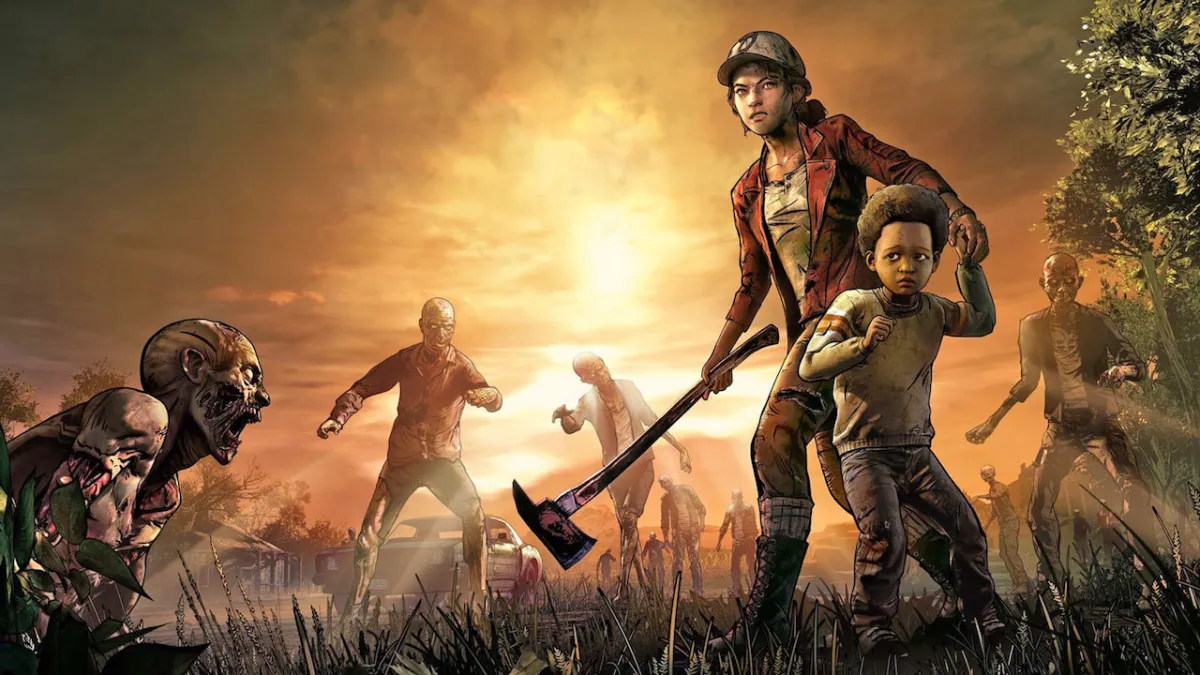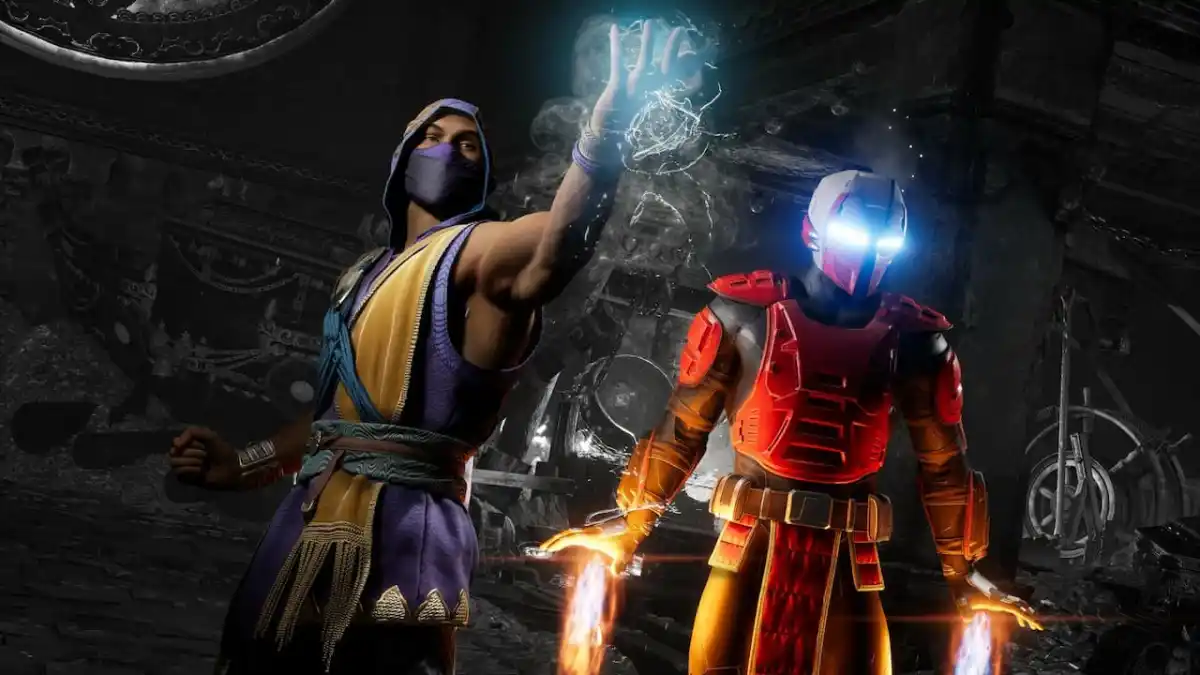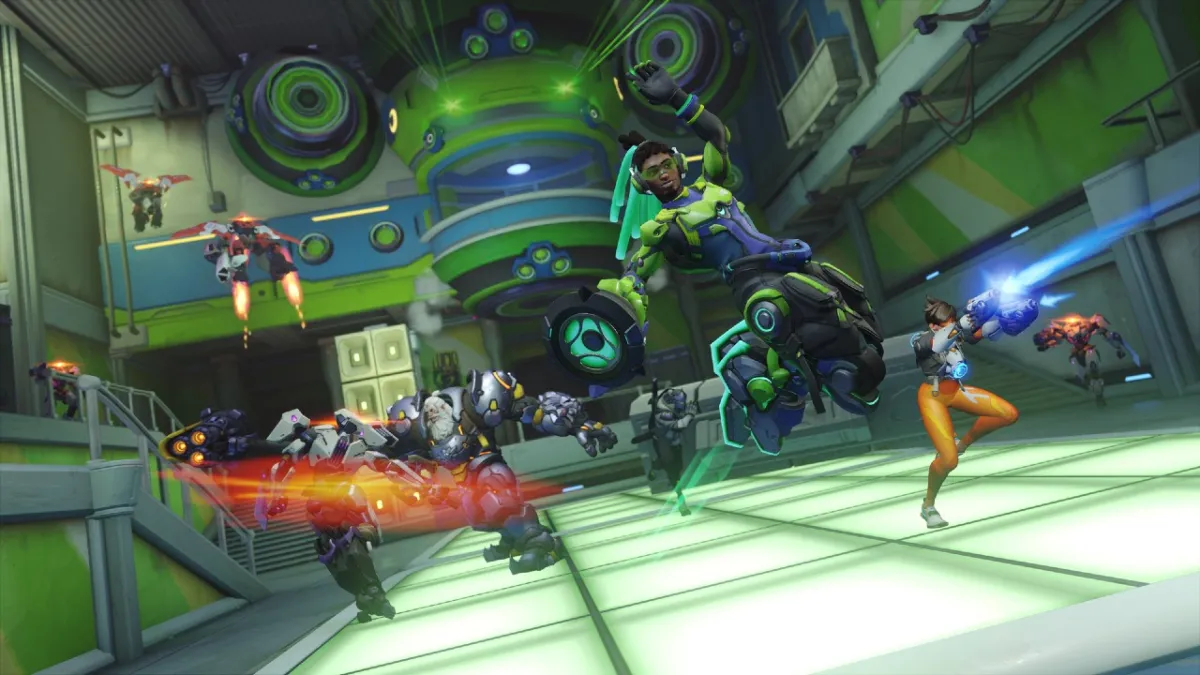As of the time I’m writing this article, we are just a few hours away from the release of the fourth and final episode of The Walking Dead: The Final Season. Players’ adventures with Clementine started back in 2012 when the first season of Telltale’s The Walking Dead was released, but this latest season has had by far the most tumultuous development cycle of any season of the game and it is a bonafide miracle that the series is even getting finished. So, before Clem’s journey finally ends for good, let’s look back on the development of The Final Season, how it came dangerously close to being cancelled before it was finished, and how it was miraculously revived.
On May 30, 2017, the fifth and final episode of the series’ third season, The Walking Dead: A New Frontier, was released. Throughout the season, many fans were upset that Clementine, who had played a major role in both Season One and Season Two, was relegated to more of a secondary role in A New Frontier. However, this fifth episode concluded with a post-credits scene that ended with the text “Clementine’s story will continue…” A New Frontier was a bit bumpy for a number of reasons, but at least fans could come away with the knowledge that there would be at least one more season and that hopefully Clem would be given a more important role next time.
A couple of months later, on July 19, 2017, The Walking Dead: The Final Season was officially announced during a summer update in which Telltale also revealed their plans to make Batman: The Enemy Within and a second season of The Wolf Among Us. Not much was revealed about The Final Season other than that Clem would be the playable character once again and that this fourth season would be the final season and would wrap up Clem’s story once and for all. At this point, the plan was to start Batman: The Enemy Within later that year and have it finish up by early 2018, then to have The Final Season release throughout early 2018 and have The Wolf Among Us 2 release throughout late 2018. Batman: The Enemy Within released on schedule, but as we’ll see, the rest of these plans didn’t exactly pan out as expected.
We wouldn’t end up getting much more concrete information regarding The Walking Dead: The Final Season for almost another year, but in that time, some other important events took place at Telltale. In September of 2017, Pete Hawley took over as the company’s CEO, replacing Kevin Bruner, one of the company’s co-founders and CEO from 2015-2017. After the release of the first season of The Walking Dead in 2012, Telltale was pretty much in its golden age, releasing other fan-favorite and critically well-received games like The Wolf Among Us and Tales from the Borderlands. But under Bruner’s reign, the company started to spread itself too thin, hiring more people than they could pay and taking on more projects than they could handle. In 2017 alone, Telltale was working on The Walking Dead: A New Frontier, Guardians of the Galaxy, Minecraft: Story Mode – Season Two, and Batman: The Enemy Within. The company’s quantity-over-quality model began to show, as many of the games released between 2015-2017 received mixed reviews and reception, a stark contrast to the critical acclaim of the first Walking Dead. Mixed reception led to declining sales and eventually Telltale’s board had had enough and replaced Bruner with Hawley in the hopes of turning the company around.
A couple of months later, in November of 2017, Telltale laid off 25% of their employees, totaling about 90 employees who lost their jobs, under the guise of restructuring the company. The official statement regarding these lay-offs stated that the company was shifting to “focus on delivering fewer, better games with a smaller team.” Looking back, it’s now more obvious that upper management probably wanted to save some money on payroll in an attempt to avoid the company’s eventual financial collapse. Still, nearly a hundred people all losing their jobs at once is never a good thing. As this related to The Final Season, the official statement also read that these lay-offs were “not expected to impact the release of any of the company’s previously announced projects.”
Despite this statement, it eventually became clear that Telltale wasn’t exactly on schedule. In April of 2018, during PAX East, we finally got our first real look at The Walking Dead: The Final Season. Concept art was shown that revealed locations like Ericson’s Boarding School for Troubled Youth, as well as some first looks at new characters like Marlon, Tenn, Louis, and Violet. We also heard about some new features the game would include, like the new “graphic black” art style and unscripted zombie encounters. Though many of the new concepts revealed during this panel seemed promising, many fans remained skeptical, not totally convinced that the series would be able to come back after what many considered to be a misstep with A New Frontier. Some were also upset that, since we were just getting our first real look at the game in April, it was clear that Telltale’s original timeline of releasing The Final Season throughout early 2018 wouldn’t come to fruition. The following month, it was confirmed that Telltale would be unable to meet their previously announced deadlines when they revealed that The Wolf Among Us 2 had been delayed from late 2018 to sometime in 2019. Still, many were just happy that we would be getting a second season of The Wolf Among Us at all.
On June 6, 2018, just before E3, the first official trailer for The Walking Dead: The Final Season was revealed, as well as a date for the first episode. The Final Season would premiere in just a couple of months on August 14. The hype was real.
After a few years of relative mediocrity, it seemed like things might be turning around for Telltale. The Walking Dead: The Final Season was looking increasingly promising; the long-awaited The Wolf Among Us 2 was just around the corner; in June, Telltale also announced that they were working with Netflix on a game based off of the hit TV series Stranger Things. Things were looking good. Maybe that “restructuring” that occurred the previous year had worked after all?
Then, marketing for The Final Season went into full throttle. On July 20, 2018, Telltale showed off the first fifteen minutes of the first episode, and despite any previous reservations fans may have had, it looked good. On August 2, the game’s Story Builder was revealed, which allowed players to catch up on the story to that point while enjoying a cool, comic-inspired narration of the events leading up to The Final Season.
On August 9, just a few days before the season’s premiere, the official trailer for the first episode was released. It was almost here. We were ready.
On August 14, 2018, the first episode of The Walking Dead: The Final Season, “Done Running,” was released. And it was great. After just one episode, I personally thought that The Final Season was already better than A New Frontier. Telltale managed to keep the hype up by not just having released a fantastic first episode, but by then announcing the release dates of all the remaining episodes just one day after the first episode premiered, something Telltale hadn’t done before for past series or seasons. According to this schedule, the second episode would release on September 25, the third on November 6, and the fourth and final episode would be out on December 18. With only a month and a half between episodes, this would be the fastest Telltale had released a season, since wait times between episodes normally took about two to three months for previous games. Between the release of a great first episode and the prospect of new episodes releasing quickly and consistently, and on known release dates, it was an exciting time to be a fan of Telltale’s The Walking Dead.
Things continued to look good for a while. In September, Telltale revealed their intent to release physical copies of The Final Season in November. Later that month, the trailer for the second episode was released, which revealed the return of a character from Season One. Things appeared to be running smoothly, but then that’s when tragedy struck.
On September 21, 2018, seemingly out of nowhere, Telltale announced that they were going through a “majority studio closure,” which resulted in the company firing about 250 people without severance pay, leaving only around 25 to finish up contractual obligations to the company’s partners. Apparently, despite everything seeming to be going well on the surface, Telltale continued to struggle financially throughout 2018 and The Final Season‘s subpar sales, despite generally positive reception to the first episode, weren’t enough to save the company from financial collapse. Interestingly, Telltale did not officially cancel any of its upcoming projects at the time, and the fact that Telltale was still technically a company, granted a company with only about 25 employees, gave some fans hope that The Walking Dead, The Wolf Among Us 2, and maybe even the Stranger Things game could eventually get finished once the company was back on its feet.
A few days later, on September 24, Telltale CEO Pete Hawley stated that, while nothing was certain, Telltale was looking into some possibilities with some of its partners that would allow them to finish development of The Walking Dead: The Final Season. It was unclear what this would look like at the time, but it was enough to give fans hope that Clementine’s story would get the ending that it deserved. Since development of the second episode, “Suffer the Children,” was already finished, it was released as scheduled on September 25. Though there were many still holding out hope for the completion of the season and many more just in straight-up denial, we all knew that it was a strong possibility that the series would end on the cliffhanger that this episode concluded with and that the story would never reach a true resolution.
Then, after about two weeks of painstaking waiting to hear more news on the situation, Robert Kirkman, the creator of The Walking Dead franchise, announced that the games division of his company, Skybound, would be hiring many of the ex-Telltale employees who had been working on The Final Season on a contractual basis to finish the two remaining episodes of the game. And thus the fanbase rejoiced.
It wasn’t all good news, however. Around this same time, Telltale laid off even more employees, keeping on only about five to finish up everything that was left to finish up. On October 11, 2018, Telltale officially began liquidation, and a number of games the company was working on, including The Wolf Among Us 2, the Stranger Things game, an eventual second season of their Game of Thrones game, and an entirely original IP, were all subsequently officially cancelled.
Meanwhile, the future of The Walking Dead was still largely uncertain. Kirkman and Skybound wanted to do everything they could to finish The Final Season, but there were many challenges still in the way. All the recently fired ex-Telltale employees were looking for jobs, so if they were offered permanent jobs at other companies before Skybound and Telltale reached their agreement to finish The Final Season in early October, they obviously wouldn’t be able to work for Skybound to finish the game. In addition to it being unclear how many, if any, Telltale employees would be able to return to work on the game, there were still more legal issues to work through, as well as logistical issues, such as how Skybound, a Los Angeles-based company, could hire a bunch of people who live in or near San Francisco, where Telltale was located, without forcing them all to relocate.
Despite these persistent issues, everything was eventually worked out and development on The Walking Dead: The Final Season officially resumed under Skybound Games on November 19, 2018. A few weeks later, a new release date for the third episode was announced, along with a teaser trailer to let everyone know that the game was back on track. The new episode was set for release on January 15.
On Christmas of 2018, Skybound teased the date January 7, which would see the release of the official trailer for Episode 3. The hype was back and stronger than ever. The Final Season was actually going to get finished.
On January 15, 2019, the third episode of The Walking Dead: The Final Season, “Broken Toys,” was released and it was like Telltale had never left. The same day, it was revealed that the fourth and final episode was scheduled for release on March 26. After one of the most troubled development cycles of all time, The Final Season would finally end the way it was supposed to.
In February, Skybound announced their plans to release physical copies of The Walking Dead: The Final Season, picking up where Telltale had left off, as well as revealing a physical Collector’s Pack of the game. On Valentine’s Day, they teased the date for the next trailer, which was released on March 20.
And that brings us up to date. The fourth and final episode of The Walking Dead: The Final Season, “Take Us Back,” will be released in just a few hours, and Clementine’s story will finally be brought to a close. The night will be over soon…











Published: Mar 25, 2019 11:26 am